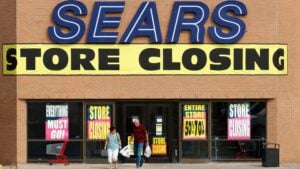
Do-it-yourself (DIY), perhaps even more than rugby, is New Zealand’s passion. PlaceMakers is a temple to our love affair with making and fixing things by ourselves. While this “man alone” approach might be OK if you’re tiling a bathroom it leads to major problems in business.
Building a successful company requires multiple skill sets: sales, finance, marketing, legal, research & development, intellectual property, strategy, HR etc. It is impossible for a single person to possess all these skills – no one is that good. The solution is obvious: build a team that (collectively) has a broad range of skill sets.
Unfortunately however we Kiwis think of “team” very narrowly, generally as “the people who work for me”. This means that anything the company needs to do is done by the people in the company. We do it ourselves – as I said: we love DIY.
Compare this to Silicon Valley which has a very different notion of “team”. Team is not just “staff” but includes key advisors to the company: your lawyer, your strategy advisor, your subject matter expert, are all part of “the team”. This makes sense: when you’re getting started you don’t need high powered HR skills everyday so it is sensible to have a strong HR person on retainer who is there when you need them.
Successful CEOs focus staff on what the company is really good at (its core business) and don’t hesitate to engage external experts and providers to do all the other stuff. Both groups are part of the team. Some advisors are regarded so highly that smaller companies end up pitching just to use their services! One of the benefits a top level venture capitalist in Silicon Valley brings is their ability to get you onto the client list of the best lawyers, consultants and advisors.
These advisors are paid well, not just because they are highly skilled, but because the advice they give, as a member of your team and someone who understands your company, often shaves months off development time frames, avoids critical errors, identifies new opportunities and creates new networks. In short good external advice makes a profound difference.
Unfortunately in New Zealand our DIY approach means we tend to:
1.Only reluctantly engage external providers and experts.
2. Engage them only when we’ve tried to fix a problem and we are finally forced (note that word) to admit it’s beaten us.
3. Use the cheapest lawyer/ accountant/ expert/ advisor we can find (preferably free).
This approach is driven not just by a desire to save money but also by a general reluctance to ask for advice. But DIY outside your core expertise is simply not a winning strategy:
1.The cost of fixing mistakes grows exponentially over time. Retaining an expert who stops you driving off the cliff is much cheaper than paying one to meet you with the ambulance at the bottom.
2. Irregular engagement with an advisor means they are constantly playing catch up – you’ll spend a lot of time and money getting them back up to speed when they could be giving you regular, timely advice.
3. You get what you pay for. Poor advice can rapidly ruin even a promising business. Remember: the only thing more expensive than good advice is bad advice.
Trying to do a job your team is not qualified for wastes valuable resources and almost invariably produces a poor result. Much like trying to change the oil in your car when you don’t know which end it goes in and which end it comes out. If you want something done right you need to employ a professional.
The take-home message here is: if you hire high quality, professional advisors and engage them regularly, as part of your team, they will come up with ideas you never thought of, help you avoid costly mistakes and spot opportunities you didn’t see. You’ll have access to a broad spectrum of expert advice from people who care about your business, which is after all, what you want from a great team.
If you found this article interesting and would like to continue the discussion, please contact us at info@everedgeglobal.com.
Recommended Reads
Free 1hr Consultation
Intangible assets are a company’s greatest source of hidden value and hidden risk. Make the valuable visible in your organisation.
Sign-up for a free 1-hour consultation today.





